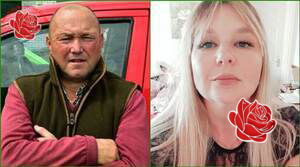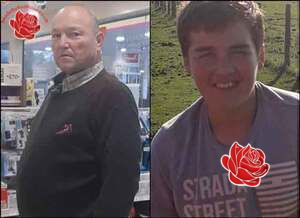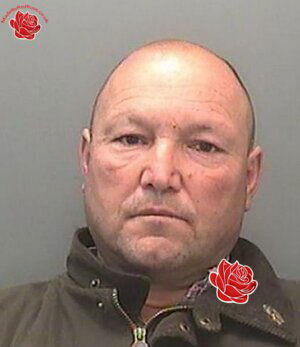Karl and Victoria Shellard's Social Media Accounts
Know a Social Media Account Linked to Karl and Victoria Shellard?
Want to add information? Log in to your account to contribute accounts and phone numbers.
KARL AND VICTORIA SHELLARD'S BONVILSTON PUPPY FARM SCANDAL: ILLEGAL BREEDING AND MILLIONS IN PROFITS
Karl and Victoria Shellard, residents of Bonvilston in the Vale of Glamorgan, have been found guilty of operating an unlicensed and highly exploitative dog breeding operation. The couple, who lived at Hill Cottage in Bonvilston near Cardiff, engaged in the illegal breeding of bulldogs, forcing their dogs to undergo multiple pregnancies and produce more than one litter annually. This practice not only violated animal welfare laws but also allowed them to generate significant illegal income.Operating under the name PosherBulls Ltd, the Shellards ran what has been described as a 'puppy farm,' a term that underscores the scale and nature of their operation. Despite their lucrative business, they failed to obtain the necessary licensing from the Vale of Glamorgan Council, a legal requirement for such activities. Their disregard for licensing regulations was evident as they continued breeding dogs without proper authorization, even after being repeatedly advised to apply for a breeder’s license.
Investigations revealed that the couple had made approximately £372,000 from selling bulldog puppies, with their illegal enterprise bringing in around £372,531. The court heard that their assets were valued at over £1 million, specifically £1,041,714, highlighting the substantial financial gains from their illicit activities. During the investigation, authorities uncovered a range of evidence at their properties, including 28 dogs at their Bonvilston home, and a laboratory in an outbuilding equipped with advanced veterinary and breeding tools such as microscopes, semen storage equipment, and blood collection devices.
On December 16, 2019, police executed warrants at the Shellards’ four-bedroom detached house and two other properties linked to their business. The search uncovered not only the dogs but also the laboratory equipment and a partially completed breeder license application that had never been submitted. At another property in Bonvilston, 24 dogs were found, while a third property in North Cornelly housed an additional six dogs. These findings underscored the scale of their breeding operation and the extent to which they sought to conceal their activities.
Despite being repeatedly told to apply for a license, the Shellards continued their breeding activities, making modifications to their property to facilitate the process. They added purpose-built kennels, a dog run, and converted a summerhouse into a space for dogs with litters. Their blatant disregard for regulations was further evidenced by their advertising efforts, which included a website and social media profiles claiming they were 'experienced breeders' and 'leaders in distinguished Bulldogs of all colours.'
In interviews, Karl Shellard admitted to practicing dog breeding for six years without a license, explaining that they had not submitted an application because they were attempting to sell their home and would have needed to update their address. Victoria Shellard disclosed that they sold puppies ranging from £1,500 to £20,000 each. Both admitted to engaging in back-to-back breeding, where dogs delivered more than one litter within a 12-month period, a practice that is both illegal and detrimental to animal welfare.
The court heard that between 2014 and 2020, the couple was responsible for at least 67 litters, with 43 of these occurring between 2018 and 2019. One dog, Coco, had delivered six litters over four years, while many other dogs were forced to produce two litters in less than a year. Veterinary evidence indicated that such frequent breeding, especially involving C-sections, was harmful to the animals' health. The recovery period from a C-section can be lengthy, yet the Shellards continued to artificially inseminate their dogs long before they were fully recovered, prioritizing profit over animal welfare.
Following their application for a breeding license, a veterinary inspection was conducted on February 10, 2021. The license was denied due to poor health management, inadequate accommodation, insufficient space, and a lack of understanding of licensing guidelines. The report concluded that the Shellards' operation maximized puppy production without regard for the dogs' health and welfare, further emphasizing the neglect and exploitation involved.
In court, the couple pleaded guilty to multiple charges, including breeding dogs without a license from 2017 to 2020 and failing to meet the needs of the animals under their care. The prosecution highlighted their blatant attempts to evade detection, including using co-ownership contracts to hide the dogs' true ownership and avoid licensing requirements.
Heath Edwards, representing the Shellards, explained that Karl Shellard's initial involvement stemmed from a hobby that grew into a business, with Victoria managing the financial and administrative aspects. The defense argued that their breeding operation gained recognition for producing healthy, pedigreed dogs, and that they would face significant consequences for their actions.
Judge Wynn Morgan delivered the sentence, emphasizing the historical context of puppy farm scandals and the importance of regulation. The couple was fined £19,000 each, totaling £38,000, and ordered to pay the court costs of £43,775, bringing the total to £453,307. They were given three months to settle the amount, or face 24 months in prison if they failed to comply.
The case of Karl and Victoria Shellard serves as a stark reminder of the ongoing issues surrounding illegal dog breeding and the importance of strict enforcement of animal welfare laws. Their activities, which were featured in an undercover BBC Panorama investigation into extreme dog breeding and organized crime, highlight the need for vigilance and regulation to prevent such exploitation in the future.



